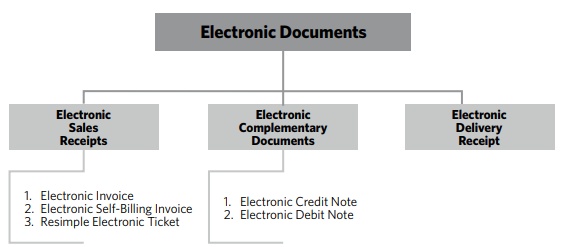El Instituto de Previsión Social (“IPS”) emitió una resolución por la cual aprueba la presentación de un proyecto de Ley que busca complementar, ampliar y modificar disposiciones del régimen legal del seguro social obligatorio, en cuanto a la base reguladora en materia de jubilaciones; además del redireccionamiento de aportes a favor del IPS, y, que facultaría a la escribanía mayor de gobierno a autorizar escrituras públicas de transferencias de inmuebles y otros actos jurídicos sobre bienes registrables del IPS.
Por medio de la Resolución C.A. N° 029-001/2024 de fecha 25 de abril de 2024 (la “Resolución”), el IPS resolvió la aprobación de un proyecto de Ley que busca realizar modificaciones varias al régimen legal del seguro social obligatorio (el “Anteproyecto”).
En líneas generales, el Anteproyecto aprobado por la Resolución, dispone:
- Que el proyecto se fundamenta en la necesidad de equilibrar y sostener financieramente el régimen del Seguro Social administrado por el IPS, y que, la intención es garantizar a las siguientes generaciones el acceso oportuno de las prestaciones económicas de vejez, invalidez, muerte y sobrevivencia.
- También señala que, el debate sobre el presente y futuro de las pensiones es un tema bastante sensible en todos los países por los intereses que están en juego y no es distinto en el Paraguay atendiendo que los informes técnicos que en general todas las cajas Previsionales de nuestro Sistema son actualmente deficitarias y el Fondo Común de Jubilaciones y Pensiones del IPS en particular registra desequilibrios y de sostenibilidad actuarial. El Informe Actuarial 2018 ““ESTUDIOS Y PROYECCIONES ACTUARIALES DEL RÉGIMEN DE JUBILACIONES Y PENSIONES 2018-2100”, del IPS y el INFORME ACTUARIAL 2021-2100 “ESTUDIOS Y PROYECCIONES ACTUARIALES DEL REGIMEN DE JUBILACIONES Y PENSIONES 2021-2100, del IPS, se consideraron como antecedentes y sustento para la presentación de la propuesta.
- Redireccionar recursos actualmente recaudados por el IPS, que mensualmente son transferidos a otras instituciones. Estos recursos provienen de contribuciones de empleadores y originalmente no fueron designados como ingresos institucionales para financiar prestaciones del Seguro Social del IPS. En cambio, se utilizaron para financiar campañas de salud pública contra el Paludismo y para la capacitación de trabajadores a través del Servicio Nacional de Promoción Profesional (SNPP) y el Sistema Nacional de Formación y Capacitación Laboral (SINAFOCAL). De esta manera el Anteproyecto plantea redireccionar el 2,5% de lo percibido por SINAFOCAL y el SNPP nuevamente al IPS, las cuales serán transferidas en su totalidad al Fondo de Enfermedad – Maternidad. Se aclara que la media no implica el incremento de aportes al IPS.
- Facultar a la Escribanía Mayor de Gobierno a autorizar escrituras públicas de transferencia de bienes inmuebles a título oneroso o gratuito, modificación o extinción de derechos reales a favor del IPS.
- Proponer 5 tipos de jubilaciones:
- Ordinaria.
- Ordinaria Anticipada.
- Invalidez por Enfermedad Común
- Invalidez por Accidente de Trabajo o Enfermedad Profesional.
- Proporcional.
- En cuanto a las condiciones de adquisición y la forma de cálculo del monto de las jubilaciones Ordinaria, Ordinaria anticipada y la Proporcional, establece que el haber jubilatorio que corresponda será del 100% del haber jubilatorio del promedio de los últimos 120 meses de salarios declarados, registrados, y actualizados anteriores al último aporte, además de las condiciones de edad y aportes que corresponde a estas jubilaciones. La misma metodología aplica a la jubilación extraordinaria (ley 3404/2007).
- Respecto a las condiciones de adquisición y la forma de cálculo del monto de las jubilaciones por Invalidez por Enfermedad Común o por Accidente laboral/Enfermedad profesional, establece que se compone de un monto base igual al 50% del promedio o conforme a la tabla valorativa de incapacidades, respectivamente, de los últimos 120 meses de salarios declarados, registrados, y actualizados anteriores a la declaratoria de invalidez o la iniciación de la incapacidad, según cada caso, además de las condiciones de edad y aportes, aumentos, proporciones, tablas valorativas, que corresponde a estas jubilaciones.
- La actualización de salarios a fin de establecer el haber jubilatorio serpa reglamentados por el IPS.
- Indicar que, en caso de aprobarse, la aplicación será inmediata, no obstante, el periodo de referencia irá incrementándose de 36 a 120 meses a razón de un mes por cada mes de vigencia de la ley. Los 36 últimos meses considerados, siempre serán sin actualización y los anteriores con actualización hasta que la suma llegue a 120. De manera transitoria, durante la entrada en vigor gradual prevista en el párrafo anterior, a pedido del interesado se podrá aplicar la nueva base reguladora por la totalidad de los 120 meses, otorgándose hasta una diferencia máxima de 10% del haber jubilatorio a favor del solicitante.
- Establecer que las deudas por aportes o cotizaciones al IPS son imprescriptibles, acorde a la naturaleza del derecho humano.
- Por último, plantean que los actos jurídicos otorgados en el marco del Anteproyecto estarán libres de todo tributo fiscal o municipal que incidan sobre su otorgamiento o inscripción en los registros públicos. Los gastos de escrituración o gestión quedan a cargo del IPS.
Este contenido tiene únicamente fines informativos generales y no debe ser considerado como asesoría legal puntual. Si precisa asesoramiento específico no dude en contactarnos.











